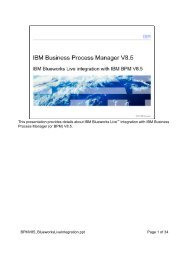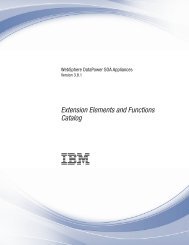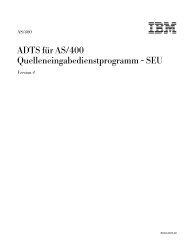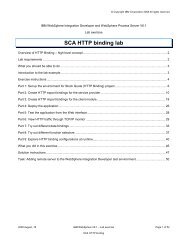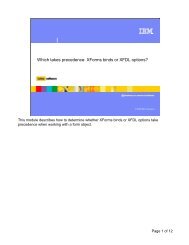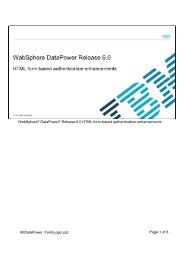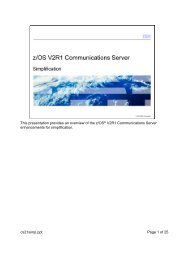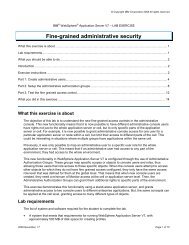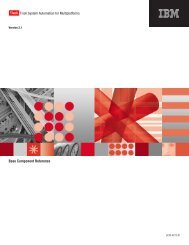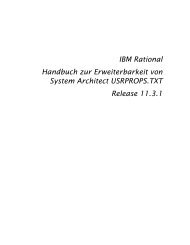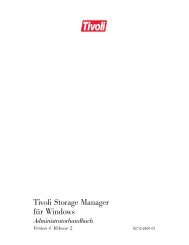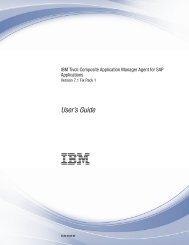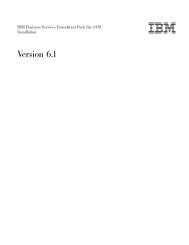z/TPF Program Management - IBM
z/TPF Program Management - IBM
z/TPF Program Management - IBM
Create successful ePaper yourself
Turn your PDF publications into a flip-book with our unique Google optimized e-Paper software.
Note: All relative paths are appended to the current working directory, which<br />
is defined using the CWD parameter in the @DEFINE control<br />
statement section. Therefore, you must define the CWD parameter<br />
before you can specify a relative path.<br />
If you specify a specific location for a program, this location overrides any<br />
default location that might have been defined for the @APPLICATION control<br />
statement section; that is, only the specific location is searched for the program.<br />
If the program is not found in the specific location, an error occurs.<br />
CWD<br />
is the value specified for the CWD parameter in the @DEFINE control<br />
statement section. If you do not specify a default location or a specific location,<br />
this is the only location that is searched.<br />
progname<br />
is the 4-character alphanumeric name of the program that you want to load to<br />
the z/<strong>TPF</strong> system. <strong>Program</strong> names must begin with a letter (A–Z). For example,<br />
if the linker creates a program called ctal51.so, the CTAL portion of the name is<br />
required.<br />
version<br />
is the 1- to 2-character alphanumeric version code for the program. For<br />
example, if the linker creates a program called ctal51.so, the 51 portion of the<br />
name is optional.<br />
.ext<br />
specifies an extension of the full program name as created by the linker, where<br />
ext is the appropriate extension. For example, if the linker creates a program<br />
called ctal51.so, the .so portion of the name is optional.<br />
(progcmt)<br />
appends a comment for the program specified by progname that is displayed in<br />
the output report, where progcmt is the text that is appended.<br />
@@progname<br />
specifies a program to patch or to move, where progname is the 4-character<br />
name of the program that you want to patch or move. <strong>Program</strong> names must<br />
begin with a letter (A–Z).<br />
Note: If you want to patch a program, you must load the program in the current<br />
@APPLICATION control statement section before you can patch it. If you<br />
are moving an entry point, you must ensure that it is being loaded in the<br />
current @APPLICATION control statement section.<br />
.objfile<br />
specifies the object file name, where objfile is an alphanumeric name of the<br />
object file (in the program) that you want to patch on the z/<strong>TPF</strong> system. Object<br />
file names must begin with a letter (A–Z).<br />
rsa<br />
is the 1- to 6-digit hexadecimal relative starting address in the program or object<br />
file. The relative starting address specifies the offset into the program or object<br />
file where the patch will be applied.<br />
newdata<br />
is the new data (or patch) that will replace the old data in the program or object<br />
file, beginning at the relative starting address. The new data must be an even<br />
number of hexadecimal digits and cannot exceed 32 digits (16 bytes).<br />
z/<strong>TPF</strong> offline loader input file control statements 127



